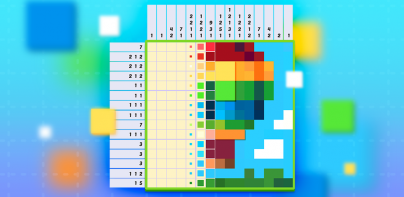


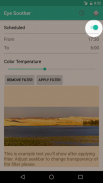
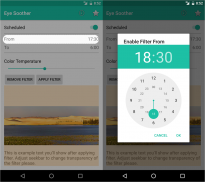

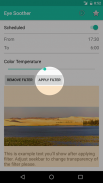

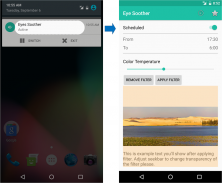
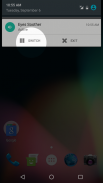

Eye Soother(Reduce blue light)

Eye Soother(Reduce blue light)の説明
Are you having trouble falling asleep? Are your kids hyperactive when playing with the tablet before bed time?
Are you using your smart phone or tablet in the late evening? Eye Soother may be a solution for you!
Recent research suggests that exposure to blue light before sleep may distort your natural (circadian) rhythm and cause inability to fall asleep.
The cause is the photoreceptor in your eyes, called Melanopsin. This receptor is sensitive to a narrow band of blue light in the 460-480nm range which may suppress Melatonin production - a hormone responsible for your healthy sleep-wake cycles.
In experimental scientific studies it has been shown an average person reading on a tablet or smart phone for a couple of hours before bed time may find their sleep delayed by about an hour.
The Eye Soother app makes your device screen adapt to the time of the day.
Eye Soother is more pleasant on the eyes for night reading. Especially as it is able to lower the screen backlight far below the ability of the backlight controls on your screen
If you have an AMOLED display, you can also save battery!
Get more from Eye Soother:
+ Similar to iOS Night Shift
+ Totally free without Ad
+ Very easy to use
+ Full Screen covered
+ Power can be saved
+ Least required permissions
+ Automatic Start and Stop the service at a specific time in Scheduled mode.
+ Reduce the blue light to protect your eyes. Blue radiations can cause insomnia.
Basics on circadian rhythm and the role of melatonin
http://en.wikipedia.org/wiki/Melatonin
http://en.wikipedia.org/wiki/Melanopsin
http://en.wikipedia.org/wiki/Circadian_rhythms
http://en.wikipedia.org/wiki/Circadian_rhythm_disorder
Related scientific research
Amplitude Reduction and Phase Shifts of Melatonin, Cortisol and Other Circadian Rhythms after a Gradual Advance of Sleep and Light Exposure in Humans Derk-Jan Dijk, & Co 2012
Exposure to Room Light before Bedtime Suppresses Melatonin Onset and Shortens Melatonin Duration in Humans Joshua J. Gooley, Kyle Chamberlain, Kurt A. Smith & Co, 2011
Effect of Light on Human Circadian Physiology Jeanne F. Duffy, Charles A. Czeisler 2009
Efficacy of a single sequence of intermittent bright light pulses for delaying circadian phase in humans Claude Gronfier, Kenneth P. Wright, & Co 2009
Intrinsic period and light intensity determine the phase relationship between melatonin and sleep in humans Kenneth P. Wright, Claude Gronfier & Co 2009
The Impact of Sleep Timing and Bright Light Exposure on Attentional Impairment during Night Work Nayantara Santhi, Daniel Aeschbach & Co 2008
Short-Wavelength Light Sensitivity of Circadian, Pupillary, and Visual Awareness in Humans Lacking an Outer Retina Farhan H. Zaidi & Co, 2007
High sensitivity of the human circadian melatonin rhythm to resetting by short wavelength light. Lockley SW, Brainard GC, Czeisler CA. 2003
Sensitivity of the human circadian pacemaker to nocturnal light: melatonin phase resetting and suppression Jamie M Zeitzer, Derk-Jan Dijk & Co 2000




